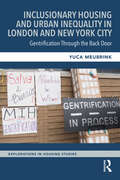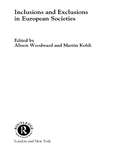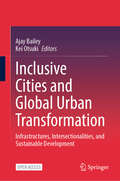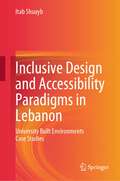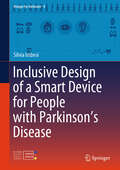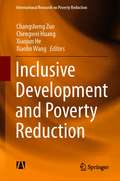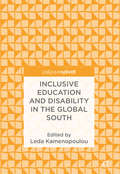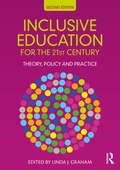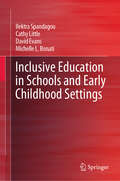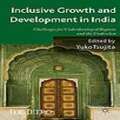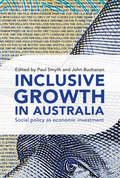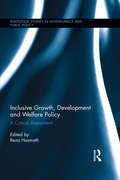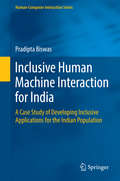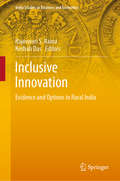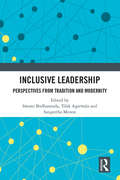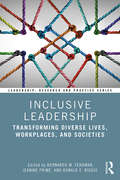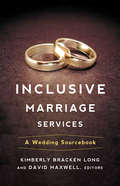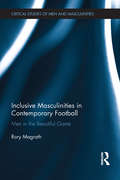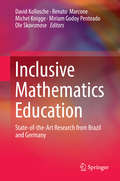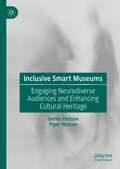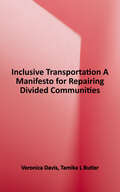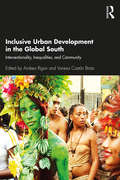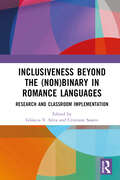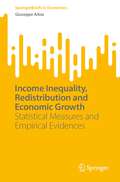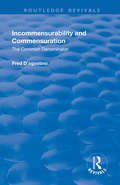- Table View
- List View
Inclusionary Housing and Urban Inequality in London and New York City: Gentrification Through the Back Door (ISSN)
by Yuca MeubrinkMunicipalities around the world have increasingly used inclusionary housing programs to address their housing shortages. This book problematizes those programs in London and New York City by offering an empirical, research-based perspective on the socio-spatial dimensions of inclusionary housing approaches in both cities. The aim of those programs is to produce affordable housing and foster greater socio-economic inclusion by mandating or incentivizing private developers to include affordable housing units within their market-rate residential developments.The starting point of this book is the so-called “poor door” practice in London and New York City, which results in mixed-income developments with separate entrances for “affordable housing” and wealthier market-rate residents. Focusing on this “poor door” practice allowed for a critical look at the housing program behind it. By exploring the relationship between inclusionary housing, new-build gentrification, and austerity urbanism, this book highlights the complexity of the planning process and the ambivalences and interdependencies of the actors involved. Thereby, it provides evidence that the provision of affordable housing or social mixing through this program has only limited success and, above all, that it promotes – in a sense through the “back door” – the very gentrification and displacement mechanisms it is supposed to counteract.This book will be of interest to researchers and students of housing studies, planning, and urban sociology, as well as planners and policymakers who are interested in the consequences of their own housing programs.
Inclusions and Exclusions in European Societies (Studies in European Sociology #Vol. 5)
by Martin Kohli Alison WoodwardEuropean social development over the last century has been characterized by an increasing inclusiveness of people into the ever-larger collectives of the nation state, the European Union and categories of welfare entitlement. Yet recent empirical data suggests that income gaps are growing and that within the physical borders of Europe there is a greater cultural and ethnic heterogeneity than ever before. Effectively, many of the processes of inclusion are accompanied by exclusion and the creation of new borders, identities and rights. Inclusions and Exclusions in European Societies features eminent contributors from across Europe addressing the problems of inclusion and exclusion as they affect European societies today. Amongst the topics addressed are: to what extent classical theory provides useful ways of reframing European societies which inequalities in work and welfare persist today and in what ways they have been transformed in processes of European integration how considerations of new identities and the pressure of globalisation affect the forms of inclusion and exclusion in Europe. This book constitutes a unique stock-taking of many of the central issues in European social integration or disintegration today.
Inclusive Cities and Global Urban Transformation: Infrastructures, Intersectionalities, and Sustainable Development
by Ajay Bailey Kei OtsukiThis open access book addresses the problem of global urban development that excludes various groups of people from the benefits of urban growth and sustainable development. Using the intersectionality and agency of urban dwellers and citizens, it outlines possibilities of responsive urban governance that builds on principles of the inclusive city. The book's first section presents various cases of digital, smart, logistical, and green infrastructure that drive a city's growth and sustainable development while excluding various citizens from these benefits. The second and third sections focus on the intersectionality and agency of urban citizens vulnerable to marginalization in different urban contexts—such as the elderly, people with various physical and mental challenges, women, and children. The last section presents the cases of potential forms of responsive governance and possibilities for future inclusive city planning and development. This book appeals to students of urban and development studies and planning and related disciplines, such as human and cultural geography, applied anthropology, sociology, sustainability sciences, architecture, and design. It is also helpful for activists and practitioners as illustrative cases presented in the book show various experiences and possibilities for making a city inclusive.
Inclusive Design and Accessibility Paradigms in Lebanon: University Built Environments Case Studies
by Itab ShuaybThis book describes the disability rights movement that started in the USA and its influence on the disability rights movement in Lebanon, which has led to the endorsement of the Lebanese Disability Act 220/2000. The book introduces the reader to the Lebanese Disability Act 220/ 2000, its definition of disability, and its relation to the medical and social models of disabilities and then articulate the Act articles. Then, it defines the inclusive design paradigm that acknowledges the needs of all people at each stage of their life cycle and presents the difference between inclusive design and accessibility and disability notions. Moreover, the book reviews the different international accessible design standards (American and French) that are adopted in Lebanon with the absence of a nationalized Lebanese design standard and its effect on eliminating barriers and enhancing accessibility at university buildings. Besides, the book presents students' experiences and their satisfaction with the university built environments. 6 university buildings case studies at the American University of Beirut are assessed and analysed to check whether they adopt the inclusive design approach and then propose inclusive design solutions for both heritage and modern university buildings. What makes the book unique is its combination of empirical and theoretical application of inclusive design. The last section, reflects the author’s inclusive design teaching pedagogy. In this section, the author shares samples of students’ class design project and provides recommendations and guidelines for teaching inclusive design so it becomes mainstream.
Inclusive Design of a Smart Device for People with Parkinson’s Disease (Design For Inclusion #4)
by Silvia ImbesiThis book reports on an inclusive design project aimed at developing IoT-based wearable devices for special populations. Specifically, it covers the design, the implementation and testing of a smart mHealth system that uses sensory cues to monitor and train the gait and posture of people with Parkinson’s disease. It presents a user-centred strategy to better involve the users in defining the most suitable type of sensory cues and their combination, and in the design of the user interface, at the purpose of developing a gait tutoring system that better fits users’ needs and requirements. All in all, this book offers extensive information on the state-of-the-art in the design and testing of innovative user-centred mHealth systems. Giving a particular attention to the explanation of the tools and methodological choices, it provides readers with a timely reference guide to understand and deal with complex inclusive design projects.
Inclusive Development and Poverty Reduction (International Research on Poverty Reduction)
by Xiaolin Wang Changsheng Zuo Chengwei Huang Xiaojun HeThis book discusses poverty reduction and inclusive development in China. The relevant research reports included here combine unique perspectives and thorough analysis, and include both comparative and empirical analyses. Although China is the first country to have achieved the UN’s Millennium Development Goals, it still faces enormous problems and challenges in terms of narrowing the income gap, reducing poverty and attaining sustainable development. This book not only provides valuable theoretical material to help readers understand inclusive development and poverty reduction in today’s China, but also offers relevant government authorities a solid theoretical and practical basis for informed decision-making.
Inclusive Education and Disability in the Global South
by Leda KamenopoulouThis edited volume examines inclusive education and disability in the global South. Presenting four qualitative research studies conducted in Malaysia, Bhutan, Philippines and Belize, the authors examine the implementation of inclusive education and disabled children’s participation in the education system: contexts on which very little is known. Thus, this book provides a unique opportunity to access rare context-specific information concerning this region of the world; and to reflect on the particular challenges some countries face in the realization of full participation of all children within education. Authored by researchers who are also teaching professionals with experience and understanding of the complexities of the real world, this book reminds us that researchers and policy makers must listen to all voices and perspectives: especially those that have remained silenced and ignored.
Inclusive Education for the 21st Century: Theory, Policy and Practice
by Linda J. GrahamThoroughly revised throughout, this bestselling book returns in a new edition to take an even more comprehensive look at the question: How can teachers and schools create genuinely inclusive classrooms that meet the needs of every student? Inclusive Education for the 21st Century provides a rigorous overview of the foundational principles of inclusive education and the barriers to access and participation. It explores evidence-based strategies to support diverse learners, including specific changes in curriculum, pedagogy and assessment practices, and the use of data. It addresses the needs of children with physical, sensory and intellectual disabilities, as well as those with complex learning profiles, including mental health issues. This second edition is rich with new content, including eleven new chapters which address learning from international experience, multi-tiered systems of support, leading inclusive education reform, the importance of language and supporting friendships. A new section has been added to provide explicit support for implementing systemic inclusive education reform from the policy level right through to classroom practice. A new series of podcasts, featuring interviews with expert chapter authors, offers an engaging complement to the chapter topics and content. With many schools still operating under twentieth-century models that disadvantage students, this book presents the deep knowledge, tools and strategies to better equip pre- and in-service teachers and leaders to make inclusive education a reality in all schools.
Inclusive Education in Schools and Early Childhood Settings
by David Evans Ilektra Spandagou Cathy Little Michelle L. BonatiThis book provides a highly informative yet concise overview of special education and inclusive education that serves as a valuable introduction to the field. Using a framework and relevant scenarios in inclusive educational settings to help readers develop a basic understanding of key concepts, it shares effective practices and engages readers in discussions on current research. Further, it highlights the commonalities between different levels of education and explores transitions across them. The book addresses theory, policy, practice and research issues in special education and inclusive education from an Australian perspective, focusing on current developments in Australian educational settings and classrooms. It also examines international issues and developments while highlighting the unique characteristics of the Australian educational context. As such, it appeals to post-graduate students, pre-service teachers, teachers and other professionals in the area.
Inclusive Growth and Development in India
by Yuko TsujitaIndia is one of the fastest growing countries in the world. However, high economic growth is accompanied by social stratification and widening economic disparity between states. This book illustrates some important aspects of underdevelopment and the process by which the underclass is left behind by focusing on the country's most neglected regions.
Inclusive Growth in Australia: Social policy as economic investment
by Paul SmythInclusive Growth in Australia overturns two decades of assumptions that social policy is wasteful and a source of dependency. It reflects a global resurgence of the understanding that an active and effective social policy regime is vital not only for a flourishing society, but also for a strong economy. It explains this new paradigm of inclusive growth and shows how it can be implemented in Australia.Inclusive growth dismantles the idea that social development will automatically trickle down from untrammelled market based growth. Rather, growth must be managed so that it is employment centred, broad based across sectors and with a social security system promoting sustainability and equality of opportunity. The editors argue that productivity is 'nearly everything' when it comes to raising living standards. So while social policies will be about goals other than the economy, they must demonstrate their compatibility with an economic growth strategy.With contributions from leading national and international experts in the field including Marian Baird, Grant Belchamber, Gerald Burke, Saul Eslake, Roy Green and Peter Whiteford, Inclusive Growth in Australia shows that 'welfare state' spending is as much an economic investment as a measure of social protection.Written for policy makers, industry and NGOs as well as students, Inclusive Growth in Australia locates Australian economic and social policy within the most important emergent themes shaping international debate.
Inclusive Growth, Development and Welfare Policy: A Critical Assessment (Routledge Studies in Governance and Public Policy #18)
by Reza HasmathThe recent global financial crisis has increased the scope of poverty and inequality. The gap between the richest and poorest nations has become wider. National income inequality has also been on the rise. The prospect of a shift in designing and implementing development and welfare policies is strong in this new environment. The neoliberal policies of the Washington Consensus are giving way to development models which look to a more active government role in both economic and social policies. Meanwhile, in the parallel universe of welfare policy a fundamental realignment is already taking place. Faced with the current economic and social challenges, policy communities have turned to a variety of instruments to ensure that growth and social inclusion go together. This book offers a systematic analysis of the growing convergence on these matters in the development and welfare state literatures, utilizing the experiences of a myriad of jurisdictions around the world. Drawing upon the expertise of leading international policymakers, practitioners, and academics in the field, this book critiques the theoretical underpinning of growth and development, examine welfare state perspectives on inclusive growth and social/economic development, and presents lessons learned and best/worst practices from the experiences of developing and developed nations.
Inclusive Human Machine Interaction for India
by Pradipta BiswasRapid advancement of interactive technologies during the past two decades has made access to information easier though at the expense of a clear digital divide. There is a generation who grew up with these technologies and another generation who find many modern electronic systems counter intuitive and have no use for them in their daily life. This digital divide becomes more prominent in developing countries as state-of-the-art interactive systems were not and are still not affordable to a large number of users. Inclusive Human Machine Interaction for India presents an end-to-end case study of developing interactive technology for the common people of India. With a foreword from Prof Ashok Juhunjhunwala (Professor, Indian Institute of Technology Madras), this book investigates problems of middle-aged and elderly users in adopting interactive technologies and proposes new user interfaces and interaction techniques. It pioneers in introducing state-of-the-art eye-gaze tracking based interaction to everyday computing tasks and presents a detailed literature survey and user studies on user modelling and eye-gaze tracking. Technologies presented in this book will not only be relevant for developing countries but will also find useful applications in developed countries.
Inclusive Innovation: Evidence and Options in Rural India (India Studies in Business and Economics)
by Keshab Das Rajeswari S. RainaThis book discusses the role of inclusive innovation for development in rural India. It uses the evidence of innovation in the context of skewed or limited livelihood options and multiple knowledge systems to argue that if inclusive innovation is to happen, the actors and the nature of the innovation system need reform. The book presents cases of substantive technological changes and institutional reforms enabling inclusive innovation in rural manufacturing, sustainable agriculture, health services, and the processes of technological learning in traditional informal networks, as well as in formal modern commodity markets. These cases offer lessons to enable learning and change within the state and formal science and technology (S&T) organizations. By focusing on these actors central to development economics and innovation systems framework, the book bridges the widening conceptual gaps between these two parallel knowledge domains, and offers options for action by several actors to enable inclusive innovation systems. The content is thus of value to a wide audience consisting of researchers, policy makers, NGOs and industry observers.
Inclusive Leadership: Perspectiives from Tradition and Modernity
by Sangeetha Menon Swami Bodhananda Tilak AgerwalaThis book reflects on the models of leadership espoused by ancient Indic traditions, in particular the Advaita Vedanta tradition. Focusing primarily on the Rajarshi – ‘the philosopher king’ – the essays in this volume showcase how using these models in contemporary society could lead to the creation of self-aware and empathic leaders and an inclusive society. The book explores examples of the Brahmarshi, or the wise scholar; Rajarshi, or the wise ruler; and Devarshi, or the visionary, to bring together all the ideal virtues of inclusive leadership in the current cultural and political space. The essays in the volume adopt a critical sociological, philosophical and management lens to analyse Indic traditions and dharmic concepts. The volume uses concepts such as dharma, karma and, yoga along with organisational psychology, technology, and management, to arrive at the concept of transcendental leadership. It theorises new definitions of the Rajarshi ideal, which can be used towards public service, social transformation and self-discovery. The volume will be useful for scholars and academics interested in Indic philosophies of leadership and governance, sociology, and social and political inclusivity. It will also be useful for readers in public administration, business and management.
Inclusive Leadership: Transforming Diverse Lives, Workplaces, and Societies (Leadership: Research and Practice)
by Bernardo M. FerdmanIn a time of increasing divisiveness in politics and society there is a desperate need for leaders to bring people together and leverage the power of diversity and inclusion. Inclusive Leadership: Transforming Diverse Lives, Workplaces, and Societies provides leaders with guidance and hands-on strategies for fostering inclusion and explains how and why it matters. Inclusive Leadership explores cutting-edge theory, research, practice, and experience on the pivotal role of leadership in promoting inclusion in diverse teams, organizations, and societies. Chapters are authored by leading scholars and practitioners in the fields of leadership, diversity, and inclusion. The book is solidly grounded in research on inclusive leadership development, diversity management, team effectiveness, organization development, and intergroup relations. Alongside the exhaustive scholarship are practical suggestions for making teams, groups, organizations, and the larger society more inclusive and, ultimately, more productive. Leaders and managers at all levels, HR professionals, and members of diverse teams will find Inclusive Leadership invaluable in becoming more effective at cultivating inclusive climates and realizing its many benefits—including innovation, enhanced team and organizational performance, and social justice. For more, visit: https://inclusiveleader.com
Inclusive Marriage Services
by Kimberly Bracken Long David MaxwellAs the country moves toward marriage equality for gays and lesbians, couples and pastors are in need of updated language for marriage services. This sourcebook not only provides inclusive marriage services, taking into account a variety of situations, but also provides guidance for couples and pastors to take into account for all couples. In addition, it includes prayers for a number of situations that happen around many weddings, such as rehearsal dinners, the wedding participants before worship, and the reception. Inclusive Marriage Services includes updated but traditional language carefully chosen, resembling historical marriages we are all familiar with, but improving some of the language.
Inclusive Masculinities in Contemporary Football: Men in the Beautiful Game (Critical Studies of Men and Masculinities)
by Rory MagrathFootball has traditionally been an institution hostile toward sexual minorities. Boys and men in the sport have deployed high levels of homophobia for multiple reasons. However, the ground-breaking research within this book shows that intolerant attitudes toward gay men are increasingly being challenged. Based on unprecedented access to Premier League academies, Inclusive Masculinities in Contemporary Football: Men in the Beautiful Game explores these changing attitudes toward homophobia in football today. Revealing a range of masculine identities never before empirically measured at this level of football, this book discusses the implications for the complex and enclosed structures of professional sport, and extends our understanding of contemporary masculinity. It also offers fresh insights to the importance of "banter" in the development of relationships and identities. This culture of banter often plays a paradoxical role, both facilitating and disrupting friendships formed between male footballers. As the first title in the Routledge Critical Studies of Men and Masculinities Series, this book is fascinating reading for all students and scholars interested in football and the study of gender, sexuality and the sociology of sport.
Inclusive Mathematics Education: State-of-the-Art Research from Brazil and Germany
by Ole Skovsmose David Kollosche Renato Marcone Michel Knigge Miriam Godoy PenteadoThe book provides an overview of state-of-the-art research from Brazil and Germany in the field of inclusive mathematics education. Originated from a research cooperation between two countries where inclusive education in mathematics has been a major challenge, this volume seeks to make recent research findings available to the international community of mathematics teachers and researchers. In the book, the authors cover a wide variety of special needs that learners of mathematics may have in inclusive settings. They present theoretical frameworks and methodological approaches for research and practice.
Inclusive Smart Museums: Engaging Neurodiverse Audiences and Enhancing Cultural Heritage
by James Hutson Piper HutsonThis book delves into the significant and timely intersection of cultural heritage, neurodiversity, and smart museums, exploring how various immersive techniques can create more inclusive and engaging heritage experiences for neurodiverse audiences. By focusing on these three aspects, the book aims to contribute significantly to the fields of cultural heritage, neuro-inclusivity, and smart museums, offering practical solutions and examples for heritage professionals and researchers. The book highlights the importance of preserving and enhancing cultural heritage by incorporating immersive technologies and inclusive practices that cater to the needs of neurodiverse audiences. It emphasizes the need for museums and heritage sites to be more inclusive and accessible for neurodivergent individuals, showcasing best practices and innovative techniques to engage this audience effectively.
Inclusive Transportation: A Manifesto for Repairing Divided Communities
by Veronica DavisTransportation planners, engineers, and policymakers in the US face the monumental task of righting the wrongs of their predecessors while charting the course for the next generation. This task requires empathy while pushing against forces in the industry that are resistant to change. How do you change a system that was never designed to be equitable? How do you change a system that continues to divide communities and cede to the automobile? In Inclusive Transportation: A Manifesto for Repairing Divided Communities, transportation expert Veronica O. Davis shines a light on the inequitable and often destructive practice of transportation planning and engineering. She calls for new thinking and more diverse leadership to create transportation networks that connect people to jobs, education, opportunities, and to each other. Inclusive Transportation is a vision for change and a new era of transportation planning. Davis explains why centering people in transportation decisions requires a great shift in how transportation planners and engineers are trained, how they communicate, the kind of data they collect, and how they work as professional teams. She examines what “equity” means for a transportation project, which is central to changing how we approach and solve problems to create something safer, better, and more useful for all people. Davis aims to disrupt the status quo of the transportation industry. She urges transportation professionals to reflect on past injustices and elevate current practices to do the hard work that results in more than an idea and a catchphrase. Inclusive Transportation is a call to action and a practical approach to reconnecting and shaping communities based on principles of justice and equity.
Inclusive Urban Development in the Global South: Intersectionality, Inequalities, and Community
by Andrea RigonInclusive Urban Development in the Global South emphasizes the importance of the neighbourhood in urban development planning, with case studies aimed at transforming current intervention practices towards more inclusive and just means of engagement with individuals and communities. The chapters explore how diversity of gender, class, race and ethnicity, citizenship status, age, ability, and sexuality is taken (or not taken) into account and approached in the planning and implementation of development policy and interventions in poor urban areas. The book employs a practical perspective on the deployment of theoretical critiques of intersectionality and diversity in development practice through case studies examining issues such as water and sanitation planning in Dhaka, indigenous rights to the city in Bolivia, post-colonial planning in Hong Kong, land reform in Zimbabwe, and many more. The book focuses on radical alternatives with the potential to foster urban transformations for planning and development communities working around the world.
Inclusiveness Beyond the (Non)binary in Romance Languages: Research and Classroom Implementation
by Gláucia V. Silva Cristiane SoaresInclusiveness Beyond the (Non)binary in Romance Languages: Research and Classroom Implementation explores both research and best practices related to inclusive language so that all students, regardless of gender identity, may be active participants in their language learning communities.Given the binary nature of Romance language grammars, it is essential that scholarly inquiry into issues related to (non)binarism be further developed and become more visible, and this volume aims to embed the issue of linguistic inclusivity within broader conversations surrounding social justice to ensure that conversations do not stop with mere linguistic changes. The book is divided into two parts: the first focuses on research related to inclusive and nonbinary forms in Romance languages, while the second highlights teaching practices and encompasses inclusive approaches that go beyond the nonbinary. Although the volume focuses on Romance languages, most (if not all) of the content is applicable to other linguistic contexts. This volume also goes beyond issues of gender inclusivity and includes content that leads to a reflection on issues of equity and social justice more broadly.This edited volume is a resource for scholars whose research focuses on inclusive language and for educators who are interested in learning more about why and how to foster inclusiveness in their language classrooms and in their workplaces.
Income Inequality, Redistribution and Economic Growth: Statistical Measures and Empirical Evidences (SpringerBriefs in Economics)
by Giuseppe ArbiaThis book focuses on economic inequality, its measurement, and its relationship with economic growth and development. The current literature uses multiple points of view, ranging from ethical, legal, philosophical, to political and economic, to understand the nature of (in)equality. Presenting the problem objectively, this book shows how to measure the phenomenon statistically along with an international comparison of the level of income inequality and economic growth and of their complex relationship. The book also analyzes three decades of theoretical and empirical evidence to understand this phenomenon and discusses a number of political measures to reduce economic disparities while stimulating economic growth.
Incommensurability and Commensuration: The Common Denominator
by Fred AgostinoThis title was published in 2003.This volume presents a detailed examination of incommensurability in the value-theoretical sense. Exploring how choosers deal with problems and constraints of choice, the author draws on work in cognitive psychology, in sociology, in jurisprudence, in economics, and in the theory of value to show how choosers learn to make "trade-offs" when there is potential incommensurability among the options they are considering. The analysis is also informed by recent work in the tradition of Michel Foucault. With so many modern devices and ideals of government dependent on the comparability of options, this book is timely and can inform public debate about de-regulation, user-pays, accountability, and the substitution of market mechanisms for government regulation and supply.
